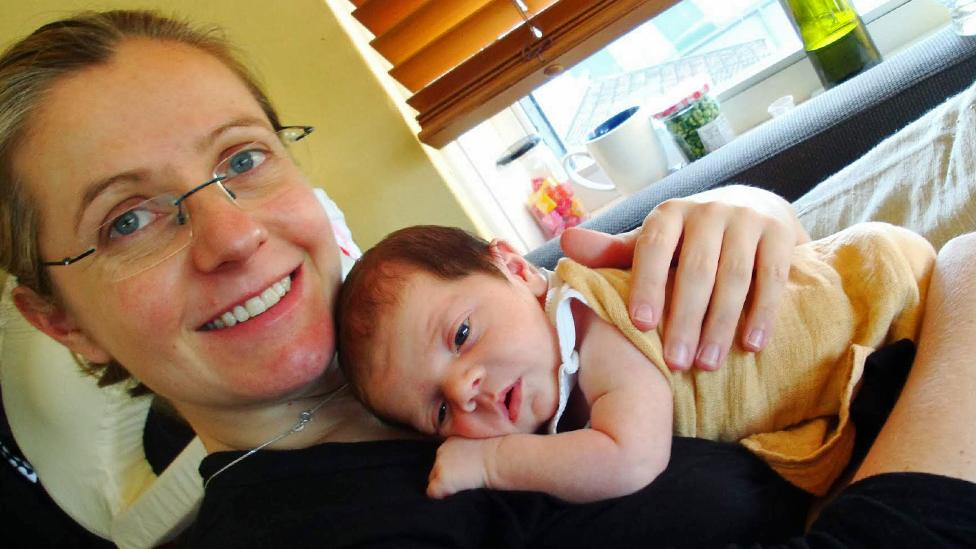Mental health: 'I ended up in a psychiatric unit after I had my baby'
- Published
'It's not what I thought would have happened to me as a new mum'
A County Antrim woman who developed mental health issues after giving birth has described how she was admitted to a psychiatric unit alongside elderly dementia patients.
Justine Lewis, 34, had postpartum psychosis after her daughter Willow was born in 2019.
She was also separated from her baby.
Northern Ireland is the only region in the UK without a specialist mother-and-baby unit for women diagnosed with the condition.
Ms Lewis told BBC News NI that her experience was a "big shock" because her family had no history of mental illness.
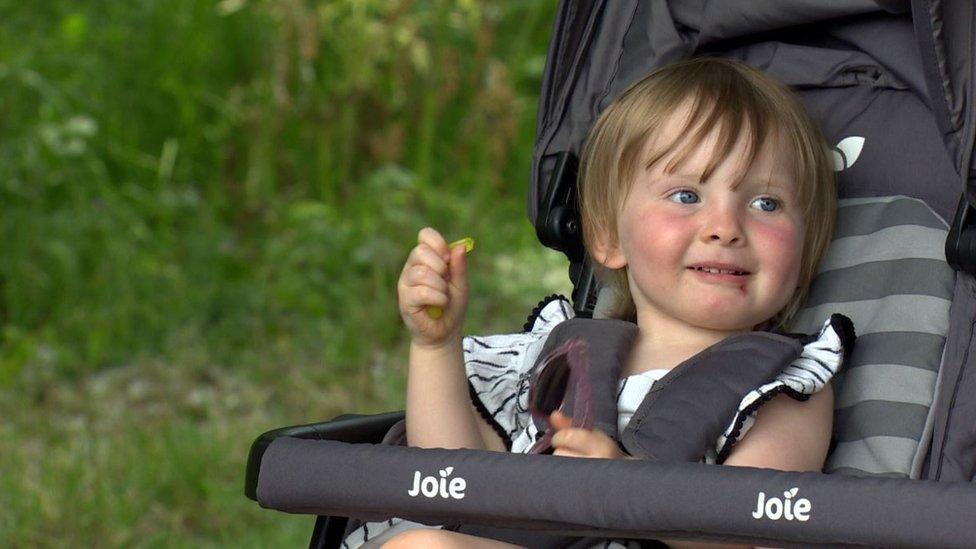
Willow was separated from her mother when Justine Lewis was admitted to hospital
This year Health Minister Robin Swann announced more than £4m to develop new regional specialist perinatal mental health services for Northern Ireland.
It is planned that each of the five health trusts will offer specialist services with new multi-disciplinary, community perinatal mental health teams.
It is hoped some of the services will be in place later this year.
In 2018, 46 women in Northern Ireland required admission to hospital, which means they would have been separated from their baby and placed in a ward where a bed was available.
Another 110 women required care from home treatment teams, which provide treatment at home on a daily basis.
Those women have daily contact with a nurse or a doctor.
Ms Lewis spent 12 days in the Tobernaveen Centre at Holywell Hospital, a 14-bed acute-admission ward that provides mental health care to men and women.
Perinatal mental health is the emotional and psychological wellbeing of women including the impact on the infant, partner and family starting from pre-conception, pregnancy and up to 36 months postpartum.
'Nowhere else to put me'
Ms Lewis believes women should not be separated from their babies when they are already feeling anxious and are seriously mentally and physically unwell.
"On the spectrum of post-natal [health] I was up there with the highest," she said.
"To me. if you are hospitalised you are very unwell. There were a lot of paranoid symptoms."
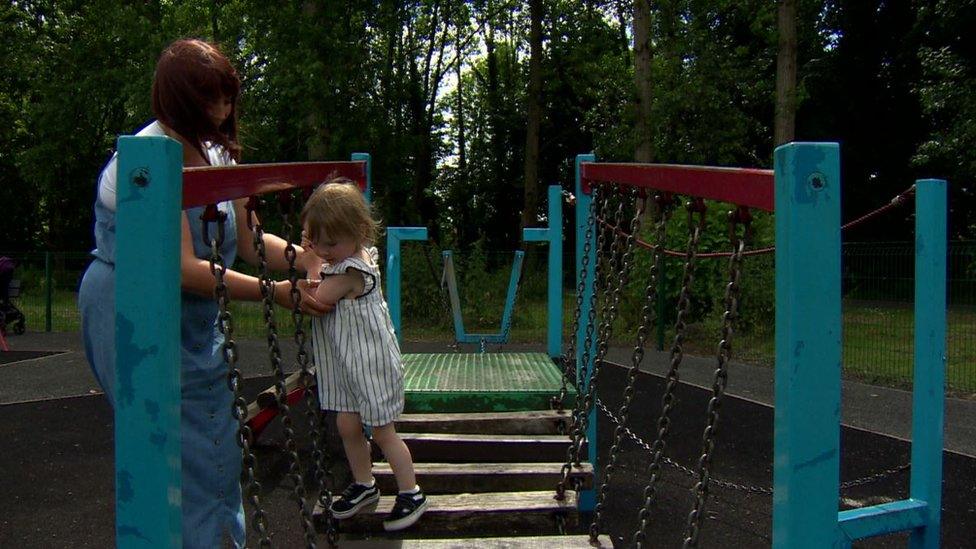
Justine Lewis has spoken out to try to give a voice to other women who have less family support
Five days after the birth of her daughter, Ms Lewis began feeling extremely anxious and worried.
Like most new mums, she had had little sleep but other symptoms were severe.
Her midwife picked up on the signs and after a consultation with her GP, she was initially sent to the emergency department at Antrim Area Hospital.
She ended up in Holywell.
"There was nowhere else to put me," she said.
"I was alongside elderly men and women, some of them had dementia and mental health problems.
"I had no idea why I was on this ward - I actually thought I was part of an experiment."
She described the healthcare staff as "brilliant", saying it was the people who helped her recover, "not the facilities".
Ms Lewis said she was never suicidal, nor did she consider harming herself, but lost all confidence and felt very scared for a long time.
She decided to speak out to give a voice to other women who do not have family support and hopes her testimony will help focus public attention on the issue.
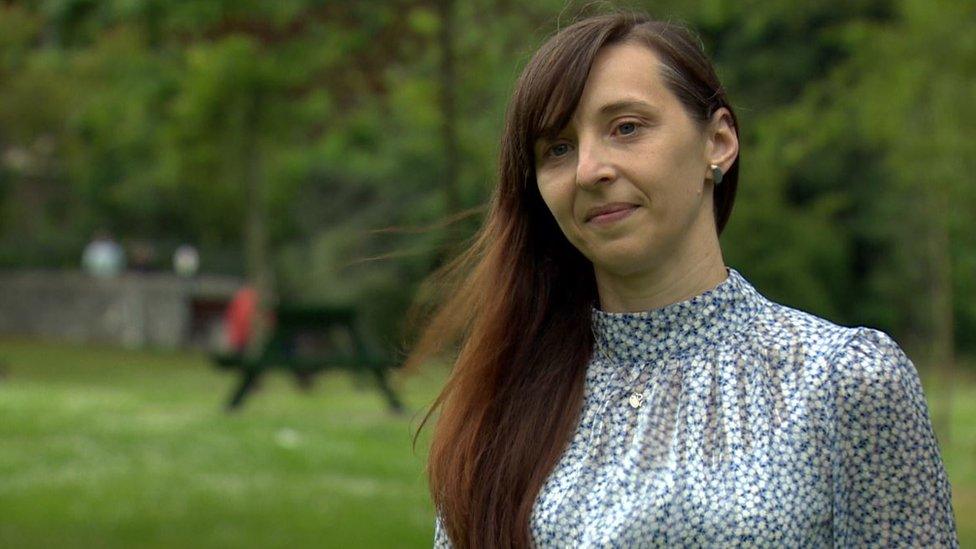
Dr Julie Anderson says women can often become unwell very suddenly after having a baby
Dr Julie Anderson, chair of the Royal College of Psychiatrists' Northern Ireland perinatal committee, said some women can become seriously unwell very quickly.
"We don't fully understand why that is but there is something about childbirth and that early postnatal period that puts women at increased risk," she said.
"Often there are not a lot of indicators in the weeks or months beforehand. It can come on very suddenly within a few hours or days of having a baby.
"And because the mum is so unwell, really she is in a position where she can't look after baby on her own and can't look after herself either."
'A plan in place'
For Ms Lewis and her partner, life has improved and they have another baby, Cooper, who is five months old.
Again, several days after the birth she required some help but "this time there was a plan in place".
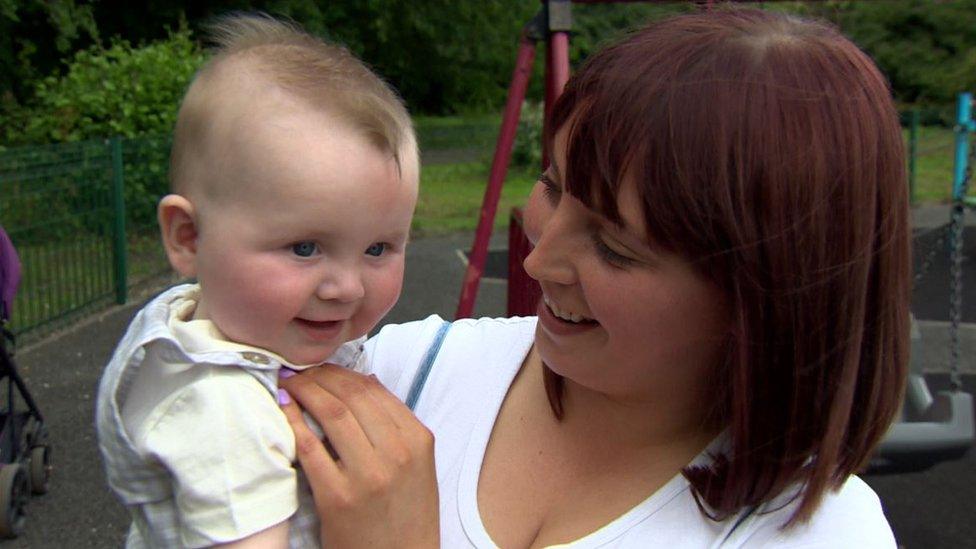
Justine Lewis needed some help when Cooper was born but had a plan in place for it
Health professionals have been campaigning for almost 20 years for Northern Ireland to have a specialist unit for new mothers.
But despite cross-party political support and backing from health officials, Northern Ireland still lags behind other parts of the UK in service provision.
The health minister has said that work would start soon on a business case for a dedicated mother-and-baby unit.
Dr Anderson said: "While it's positive the commitment is there, I am very fearful that it will drag on and ultimately that will mean that more mums will be admitted to acute psychiatric units without their babies.
"And we know that they will have worse outcomes than mums who are admitted with their babies and we don't want that for anybody else in Northern Ireland.
"It's for a small number of mums but it's a vital part of a full perinatal service.
"Everyone is in agreement that we need it but it just needs to happen much more quickly."
- Published12 June 2020
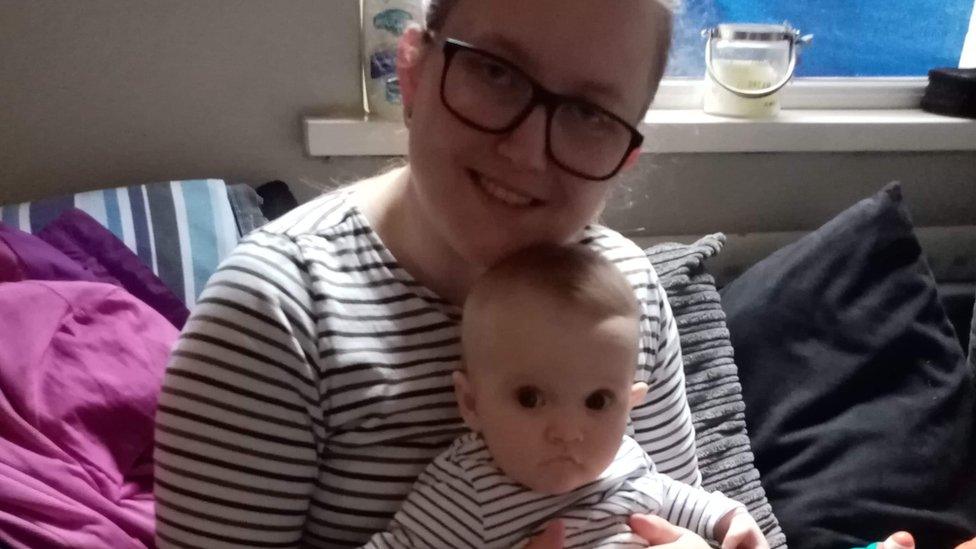
- Published18 May 2021
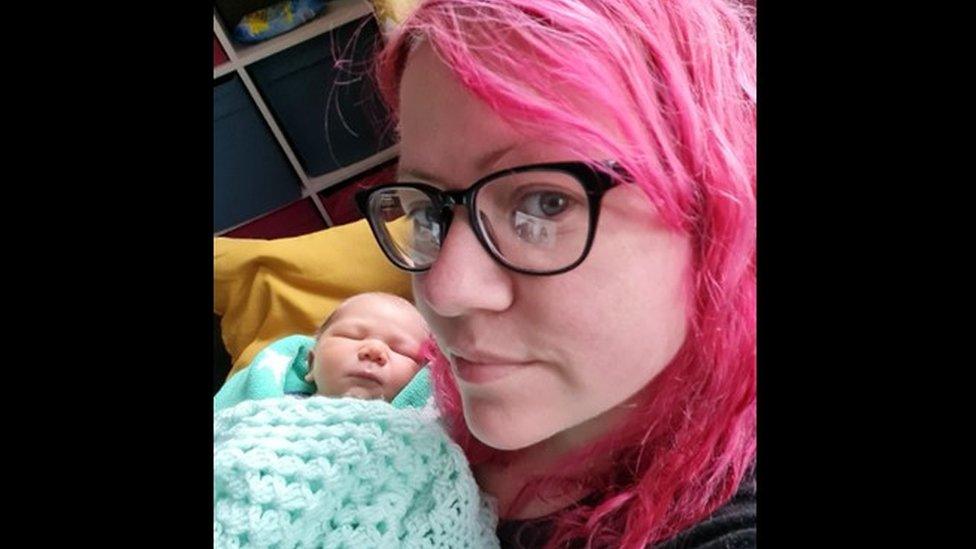
- Published14 April 2019
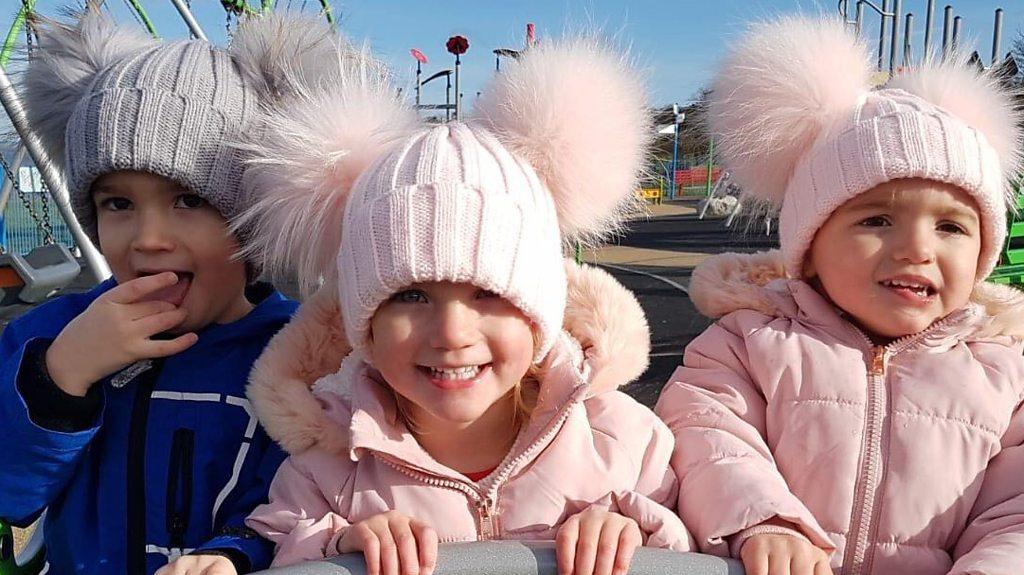
- Published11 June 2019
